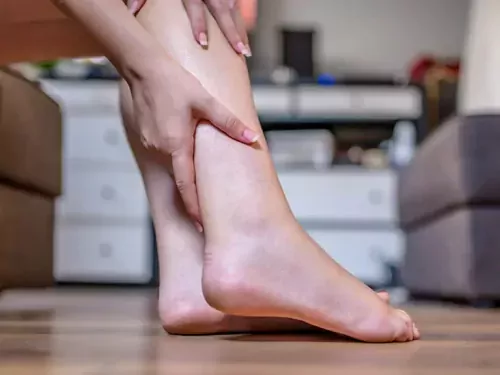
Edema is a medical condition that is characterized by the accumulation of excess fluid in the body's tissues. This excess fluid can cause swelling and puffiness in the affected area. Edema can affect any part of the body, including the legs, arms, face, and even the lungs.
There are many causes of edema, including heart, liver, and kidney problems, as well as certain medications and pregnancy. It can also be caused by standing or sitting for long periods of time, and can be exacerbated by hot weather or poor diet.
Edema is a common condition that affects people of all ages and can range from mild to severe. In some cases, it can be a temporary condition that goes away on its own, while in others it can be a chronic condition that requires ongoing treatment.
The most common symptoms of edema include swelling, puffiness, and tenderness in the affected area. In some cases, the skin may appear shiny or tight, and the affected area may feel heavy or full. Other symptoms may include difficulty breathing, fatigue, and difficulty sleeping.
Diagnosing edema typically involves a physical exam and a medical history review. The doctor may also order tests such as a blood test, an ultrasound, or a CT scan to help determine the cause of the edema.
Treatment for edema depends on the underlying cause of the condition. In some cases, making lifestyle changes, such as exercising regularly, reducing salt intake, and avoiding standing or sitting for long periods of time, can help reduce swelling. In other cases, medications such as diuretics or compression stockings may be prescribed to help reduce swelling and improve circulation.
For those with chronic edema, treatment may involve a combination of lifestyle changes and medications. In severe cases, surgery may be necessary to remove the excess fluid from the body.
In addition to conventional medical treatments, there are also a number of home remedies that can be used to help reduce swelling and improve circulation. Some of these remedies include elevating the affected limb, using cold compresses, and massage.
It is also important for those with edema to maintain a healthy diet and to drink plenty of water. A diet rich in fruits and vegetables, whole grains, and lean proteins can help to reduce swelling and improve overall health.
It is important to seek medical attention if you are experiencing symptoms of edema, as it can be a sign of a more serious underlying condition. Your doctor can help determine the cause of your symptoms and recommend the best course of treatment to manage your condition.
In conclusion, edema is a common condition that affects people of all ages and can range from mild to severe. With the right treatment and lifestyle changes, those with edema can manage their symptoms and reduce the impact of the condition on their daily lives. If you are experiencing symptoms of edema, be sure to speak with your doctor to determine the best course of treatment for your individual needs.








